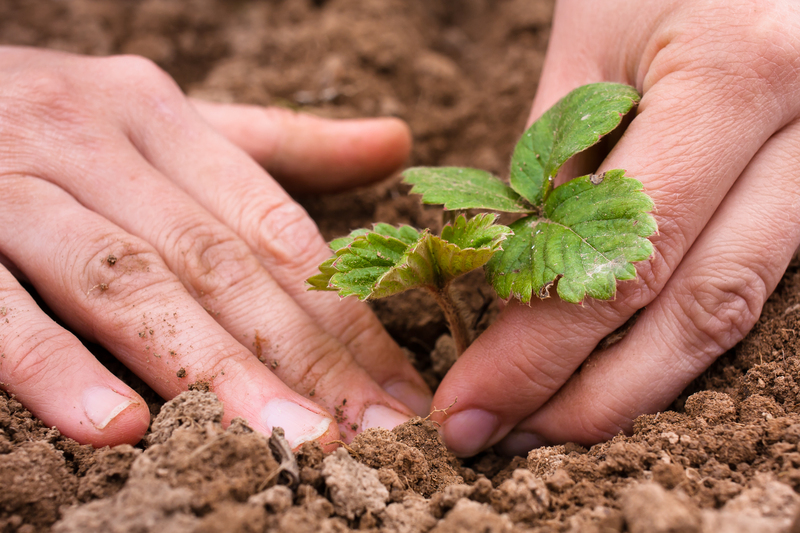Balcony Veggie Growth Guide
Posted on 30/08/2025
Growing your own vegetables on a balcony can be a rewarding experience. Not only does it give you access to fresh, organic produce, but it also allows you to connect with nature in an urban environment. This Balcony Veggie Growth Guide will provide you with all the essential information you need to get started.
Choosing the Right Vegetables
When selecting vegetables to grow on your balcony, consider the amount of sunlight your balcony receives daily. Vegetables like tomatoes, peppers, and cucumbers thrive in full sun, requiring at least 6 hours of direct sunlight. Leafy greens, such as lettuce and spinach, can tolerate partial shade.
Some ideal vegetables for balcony gardening include:
- Tomatoes
- Peppers
- Lettuce
- Spinach
- Radishes
- Herbs (basil, parsley, cilantro)

Picking the Suitable Containers
Choosing the right containers is crucial for the success of your balcony vegetable garden. Ensure the containers have proper drainage to prevent root rot. Terracotta, plastic, and fabric bags are all excellent options, each with their own pros and cons.
- Terracotta pots are attractive but can dry out quickly.
- Plastic pots retain moisture well but may lack aesthetic appeal.
- Fabric grow bags promote healthy root systems but may need more frequent watering.
Quality Soil is Key
Using the right soil is essential for healthy vegetable growth. Choose a high-quality potting mix specifically designed for container gardening. This type of soil mix usually contains a blend of peat moss, vermiculite, and compost, which provides good drainage and nutrient retention.
Avoid using garden soil as it can compact easily in containers, leading to poor drainage and root health.
Watering Techniques
Proper watering is crucial for the success of your balcony garden. Container plants can dry out quickly, especially in warmer weather. Water your plants thoroughly, ensuring the water reaches the root zone.
- Check the moisture level daily.
- Use a watering can with a fine rose to avoid disturbing the soil and plant roots.
- Consider using self-watering containers or installing a drip irrigation system for consistent moisture.
Feeding Your Plants
Container plants deplete nutrients faster than those in the ground, so regular feeding is necessary.
- Use a balanced, water-soluble fertilizer every 2-4 weeks during the growing season.
- Organic options include compost tea, fish emulsion, and seaweed extract.
- Always follow the manufacturer's instructions for application rates to avoid over-fertilizing.
Pest Management
Balcony gardens can attract pests just like any other garden. Stay vigilant and check your plants regularly for signs of pests like aphids, spider mites, and whiteflies.
- Use organic pest control methods such as neem oil and insecticidal soap.
- Introducing beneficial insects like ladybugs can help manage pest populations.
- Keep your garden clean by removing dead leaves and debris.
Tips for Successful Balcony Veggie Growth
- Sunlight Exposure: Place your containers in spots that receive the appropriate amount of sunlight.
- Spacing: Ensure enough space between containers for proper air circulation, reducing the risk of disease.
- Rotation: Rotate your vegetable crops each season to prevent soil depletion and pest buildup.
- Support: Use stakes, trellises, or cages for plants like tomatoes and cucumbers to provide support.
Pros and Cons of Balcony Gardening
Pros:
- Accessibility to fresh, organic produce.
- Space-efficient and ideal for urban living.
- Helps in reducing food miles and carbon footprint.
- Provides a therapeutic and rewarding hobby.
Cons:
- Limited space can restrict the variety and quantity of vegetables.
- Containers dry out faster and may require frequent watering.
- Potential for pest and disease issues due to confined space.
- Dependence on the balcony's exposure to sunlight and weather conditions.

Takeaways
- Select suitable vegetables based on your balcony's sunlight exposure.
- Choose appropriate containers with good drainage and space.
- Maintain high-quality soil with adequate nutrients and drainage.
- Implement effective watering techniques to keep plants healthy.
- Feed your plants consistently and manage pests organically.
- Follow practical tips for a thriving balcony vegetable garden.
Conclusion
Embarking on a balcony vegetable garden can be fulfilling and contribute to a healthier lifestyle. By choosing the right vegetables, containers, and soil, and by following the proper care routines for watering, feeding, and pest management, you can enjoy a bountiful harvest even in limited space. Happy gardening!
Latest Posts
Inspiring Ways to Refresh Your Garden This Autumn Season
A Step by Step Guide to Keeping Artificial Grass Fresh and Spotless
Creative Planting Ideas to Design a Serene Zen Oasis







